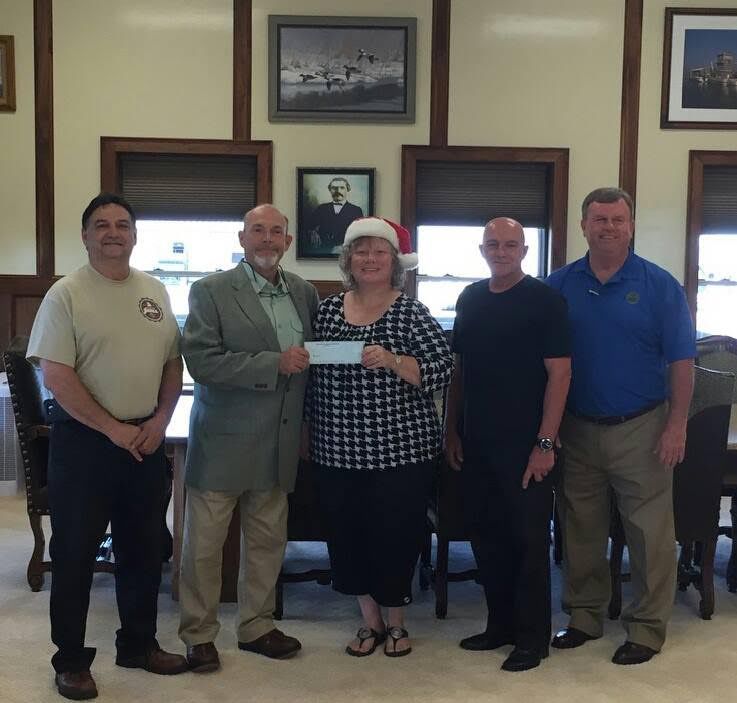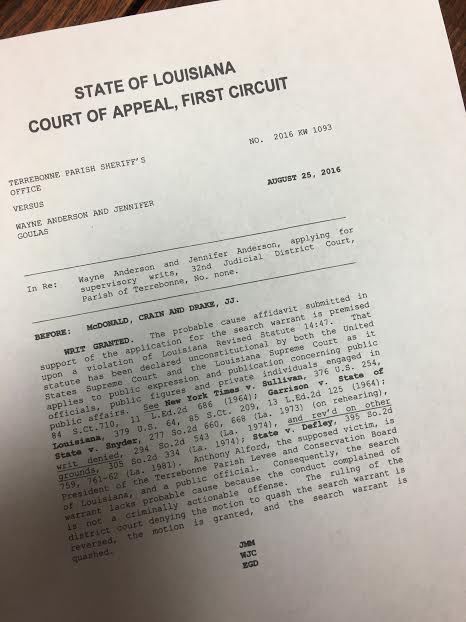
Terrebonne Christmas to look different in ’16
August 24, 2016
Appeals court quashes “ExposeDat” warrant
August 26, 2016It didn’t happen here, and that’s about the best I can say about the flooding that has crippled so many Louisiana communities this month. For those communities affected it’s far from over. For friends and loved ones of people who are affected, the distance in miles or the difference in the ecosystems is not the point. What matters is that there is loss. And we feel that loss.
That’s why churches, businesses, individuals and governments from the Bayou Region have pitched in non-stop to aid relief efforts.
Perhaps the truest words I have heard spoken in regard to our connection with all of this came from Kimberly Chauvin of the David Chauvin Seafood Company. She and other church-goers at Vision Christian Center are among the people pitching in. Shrimp, jambalaya, clothes, all kinds of things that are needed have passed through the hands of these folks and continue to do so.
It was during a casual discussion of this that Kim said “Down here if we can’t find a way to help we feel helpless.”
And I think that’s about all that needs to be said. A lot of things are floating around in the ether right now, however, that did not need saying but got said anyway.
State Sen. Jonathan Perry of Kaplan, who suggests requiring certification of volunteer rescuers in boats, has words that would fit in that category.
Certainly meaning well, he has spoken of plans for legislation that would certify rescuers like those who came to be called “The Cajun Navy,” the guys and gals who trailered their bateaus and headed out to assist, without organization, without being asked. Kevin Boyd, a blogger at the Hayride, brought this to the attention of myself and everyone else who reads him. Perry told a local television station in Baton Rouge that the problem of authorities having to rescue the rescuers, the costs, associated with the rescue efforts like fuel and damage to boats and maybe people would make training and organization necessary components.
No thank you.
The state has agencies and localities have fire departments and they have done a masterful job of meeting this challenge. Those who came of their own volition to help are doing what mariners – whether on narrow rivers or the high seas – have always done, which is come to the aid of people in distress on the water. That subdivisions became navigable waterways because of the water’s fiat should not result in any restriction of who travels on those waters, or for what purpose other than, of course, violation of the law. Anyone who knows what Kim Chauvin knows can tell you that there is no way to keep these people off the water. If they believe they can help they can come. And red tape should not be getting in the way.
Certainly auxiliary boat rescue groups can be set up at local fire departments, or through the Department of Wildlife and Fisheries. But to organize or standardize who can, should or cannot be involved in a rescue, to outright reject people with perfectly seaworthy vessels – or river-worthy vessels – from coming to help will create more problems than it solves.
Let’s be grateful that our people are as giving as they are, and find ways on the fly to help those who would help, not to shut out or exclude.
The person you bar from entering the waterway to help during the next emergency might be the very one who might have found me, if I was in distress, and I would rather nobody add to that potential. •





